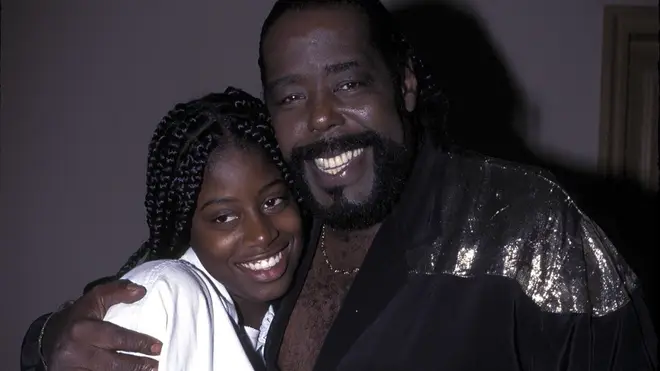Barry White
Barry White

Barry Eugene Carter, known professionally as Barry White, was an American singer and songwriter, born on September 12, 1944, and passing away on July 4, 2003. White, a two-time Grammy Award winner, was celebrated for his deep bass voice and romantic persona. His peak success occurred during the 1970s, both as a solo artist and with the Love Unlimited Orchestra. He crafted numerous enduring soul, funk, and disco hits, with two of his most notable songs being "Can't Get Enough of Your Love, Babe" and "You're the First, the Last, My Everything."
Barry White's illustrious career spanned 20 studio albums, with multiple versions and compilations released globally. A remarkable 41 of these albums achieved gold certification, while many others attained platinum status. White also boasted 20 gold and 10 platinum singles, contributing to worldwide record sales exceeding 100 million records. His commercial success solidified his status as one of the best-selling music artists in history. White drew inspiration from various musical icons, including James Cleveland, Ray Charles, Aretha Franklin, the Supremes, the Four Tops, and Marvin Gaye.
Barry Eugene Carter was born on September 12, 1944, in Galveston, Texas, to Melvin A. White and Sadie Marie Carter. Although his parents never married, his mother bestowed upon him her last name. However, he later adopted his father's surname, becoming Barry White. Raised in the Watts neighborhood of South Central Los Angeles, California, White was the elder of two siblings, with his brother Darryl being 13 months younger. He developed a passion for music at a young age, influenced by his mother's classical music collection. White's early musical endeavors involved playing the piano, inspired by the sounds he heard on his mother's records.
Barry White has frequently been credited with playing the piano at the age of 11 on Jesse Belvin's 1956 hit single, "Goodnight My Love." However, in a 1995 interview with the Boston Herald, White refuted claims of writing or arranging the song. He believed that the story was an embellishment by journalists. Despite residing in the same neighborhood, White clarified that Belvin, who was 12 years older than him, was the true talent behind the song.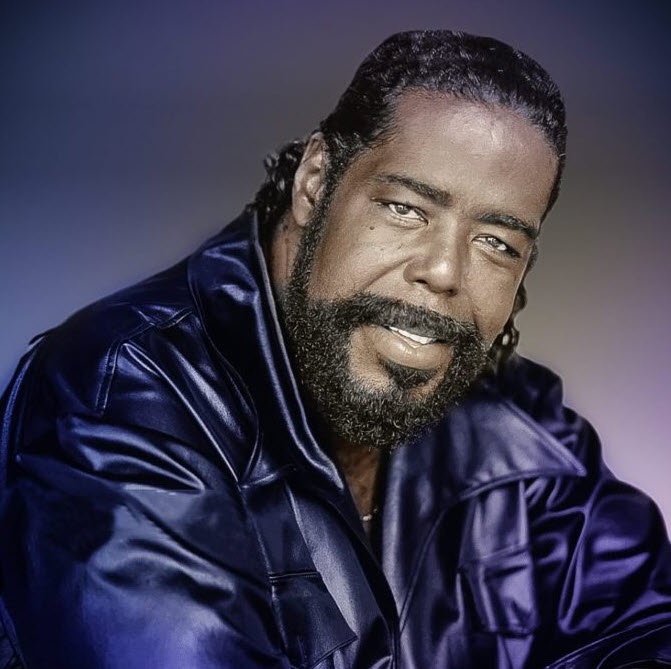
Barry White attended Jacob A. Riis High School, an all-boys academy in southeast Los Angeles. His voice deepened suddenly when he was 13 or 14 years old. Recalling the experience, White said, "[As a child], I had a normal squeaky kid voice. Then as a teenager, that completely changed. My mother cried because she knew her baby boy had become a man." In a 2000 interview with Conan O'Brien, he further remarked, "I woke up one morning when I was 14. I spoke to my mother and I scared both of us." White also mentioned to the BBC that this change occurred when he was 13.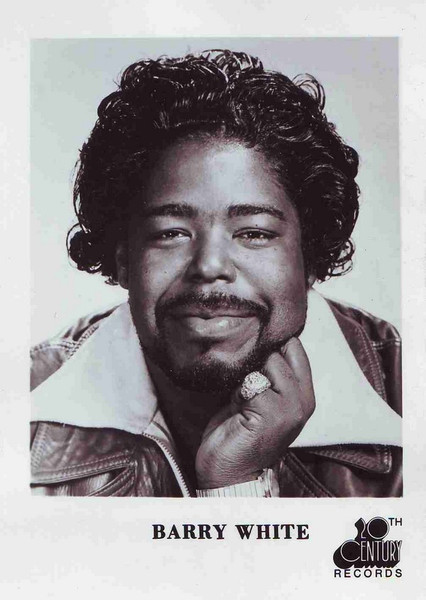
Barry White's life took a significant turn at the age of 16 when he was jailed for four months for stealing $30,000 worth of Cadillac tires (which would be equivalent to about $290,000 today). During his time in jail, he heard Elvis Presley's rendition of "It's Now or Never" on the radio, an experience he later credited with changing his life's trajectory. Another pivotal moment occurred on his 18th birthday, coinciding with the first day back for his graduating year of high school. Instead of attending class, he walked to Capitol Records headquarters in Hollywood and stood across the street, observing the vibrancy of the area for hours. This experience inspired him to pursue a career in Hollywood and the entertainment industry, despite his lack of knowledge in reading or writing music.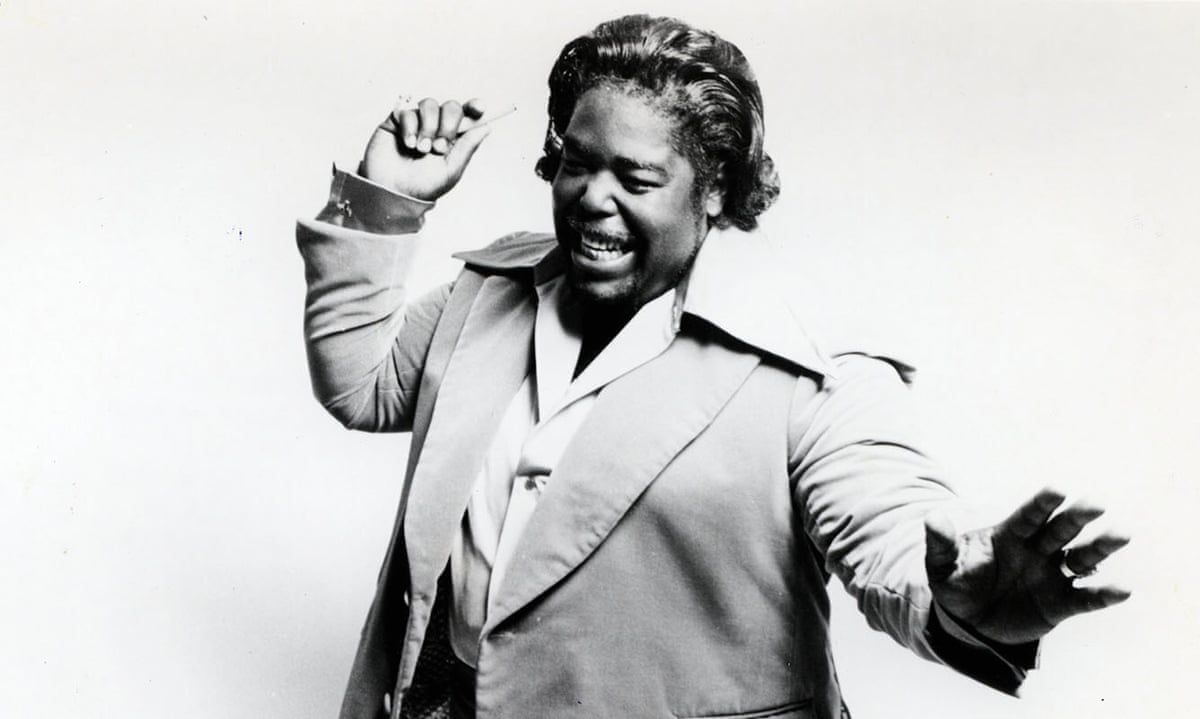
After leaving behind his involvement in gang life, Barry White embarked on a musical career in the early 1960s by joining singing groups. His debut release, "Too Far to Turn Around," came out in 1960 as part of The Upfronts. He then worked with various small independent labels in Los Angeles, recording several singles under his own name in the early 1960s. These recordings featured backing vocals from groups like The Atlantics (for labels like Rampart and Faro) and The Majestics (for labels like Linda and Jordan). Despite rumors suggesting his involvement, White clarified in his 1999 autobiography that he had no part in producing Bob & Earl's 1963 hit single "Harlem Shuffle." He confirmed that the song had been produced by Gene Page, who collaborated with him on many of his 1970s successes.
In 1965, Barry White produced "Feel Aw Right" by The Bel Cantos, which was released on the Downey label. Following this, he recorded his debut single, "Man Ain't Nothin'"/"I Don't Need It," which was released under the name "Lee Barry" on Downey in 1966. Additionally, he co-wrote "Together Forever," a song released by Pat Powdrill & the Powerdrills in 1967. These early ventures showcased White's growing involvement in the music industry and laid the groundwork for his later success as a singer, songwriter, and producer.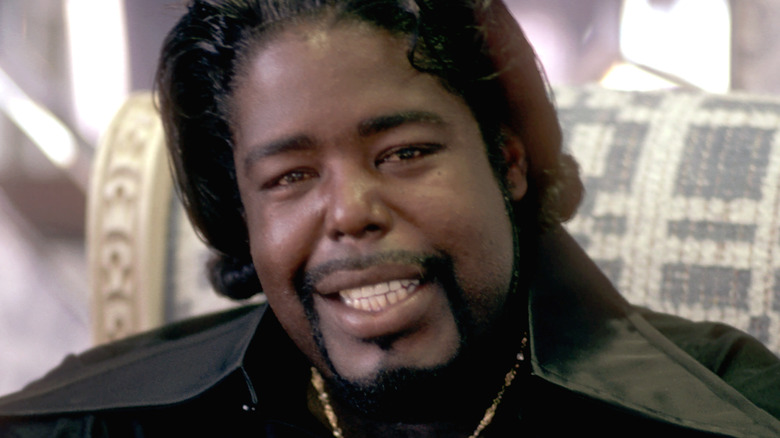
In the mid-'60s, Barry White began working with Bob Keane of Del-Fi Records as an A&R man for Keane's new Bronco Records imprint. In this role, White collaborated with various artists signed to the label, such as Viola Wills and The Bobby Fuller Four, serving as a songwriter, session musician, and arranger. Notably, White discovered singer Felice Taylor and arranged her song "I Feel Love Comin' On," which he co-wrote with his friend Paul Politi. The track became a significant hit in the UK. White and Politi also collaborated on other charting hits for Taylor, including "It May Be Winter Outside (But in My Heart It's Spring)" and "Under the Influence of Love." Bronco Records released one of White's early singles, "All in the Run of a Day," in 1967, which was produced by Keane and White himself. Additionally, White wrote "Doin' the Banana Split" for the TV bubblegum pop act The Banana Splits in 1968. These endeavors demonstrated White's versatility and burgeoning talent as a songwriter and producer during this period.
In 1972, Barry White received a significant opportunity when he produced a girl group he had discovered named Love Unlimited. Inspired by the style of Motown girl groups like the Supremes, Love Unlimited had been refining their talents under White's guidance for two years before signing contracts with Uni Records. White's friend Paul Politi introduced him to Larry Nunes, a music industry businessman who helped finance their album. After recording the album, Nunes presented the recordings to Russ Regan, who headed the Uni label owned by MCA. The resulting album, titled "From A Girl's Point of View We Give to You... Love Unlimited," marked the beginning of White's series of albums and singles with long titles. This venture showcased White's skills as a producer and contributed to his growing reputation in the music industry.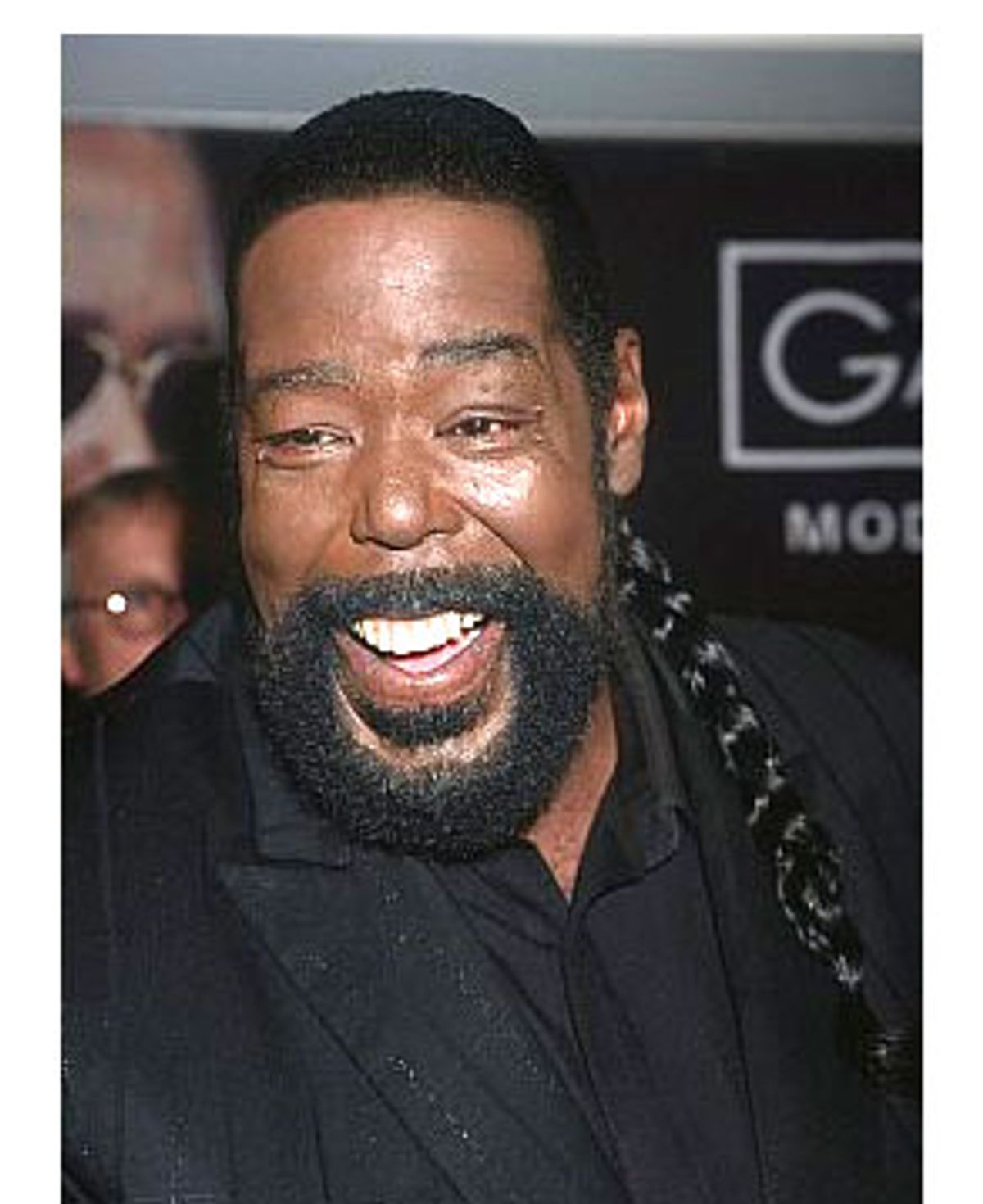
References
- Richard Harrington (July 5, 2003). "Barry White, Velvet Voice Of Love". Washington Post. Archived from the original on October 30, 2020. Retrieved May 12, 2021.
- ^ Smith, Steve (September 20, 2013). "Barry White Gets Walk of Fame Star". San Gabriel Valley Tribune. Retrieved January 6, 2014.
- ^ "Obituary: Barry White", The Independent, 31 October 2013. Retrieved July 26, 2021
- a b c d e f Colin Larkin, ed. (1997). The Virgin Encyclopedia of Popular Music (Concise ed.). Virgin Books. p. 1246/7. ISBN 1-85227-745-9.
- ^ Ramardo T. Hunt (April 3, 2018). "BTM - Barry White". YouTube. Archived from the original on December 11, 2021. Retrieved August 26, 2018.
- ^ "Barry White". Encyclopedia.com. Retrieved August 26, 2018.
^ Hunt, Dennis (July 7, 1990). "Barry White's Sound Has Made a Comeback, but Can He? : Music: The man who loves women has married his silky vocals to a hip-hop beat. He'll : be at the Universal Amphitheatre Sunday". Los Angeles Times. Retrieved September 29, 2021.


